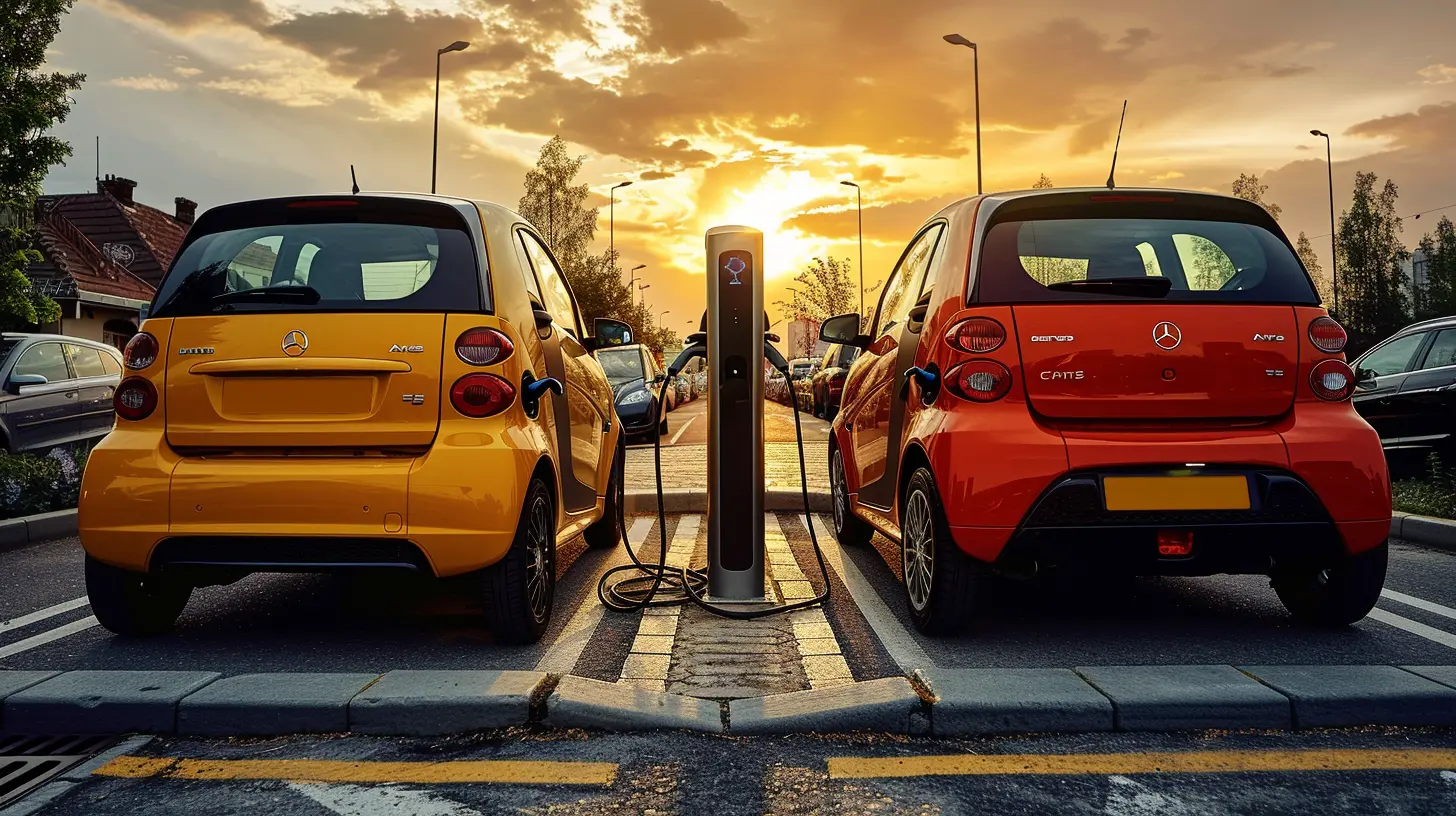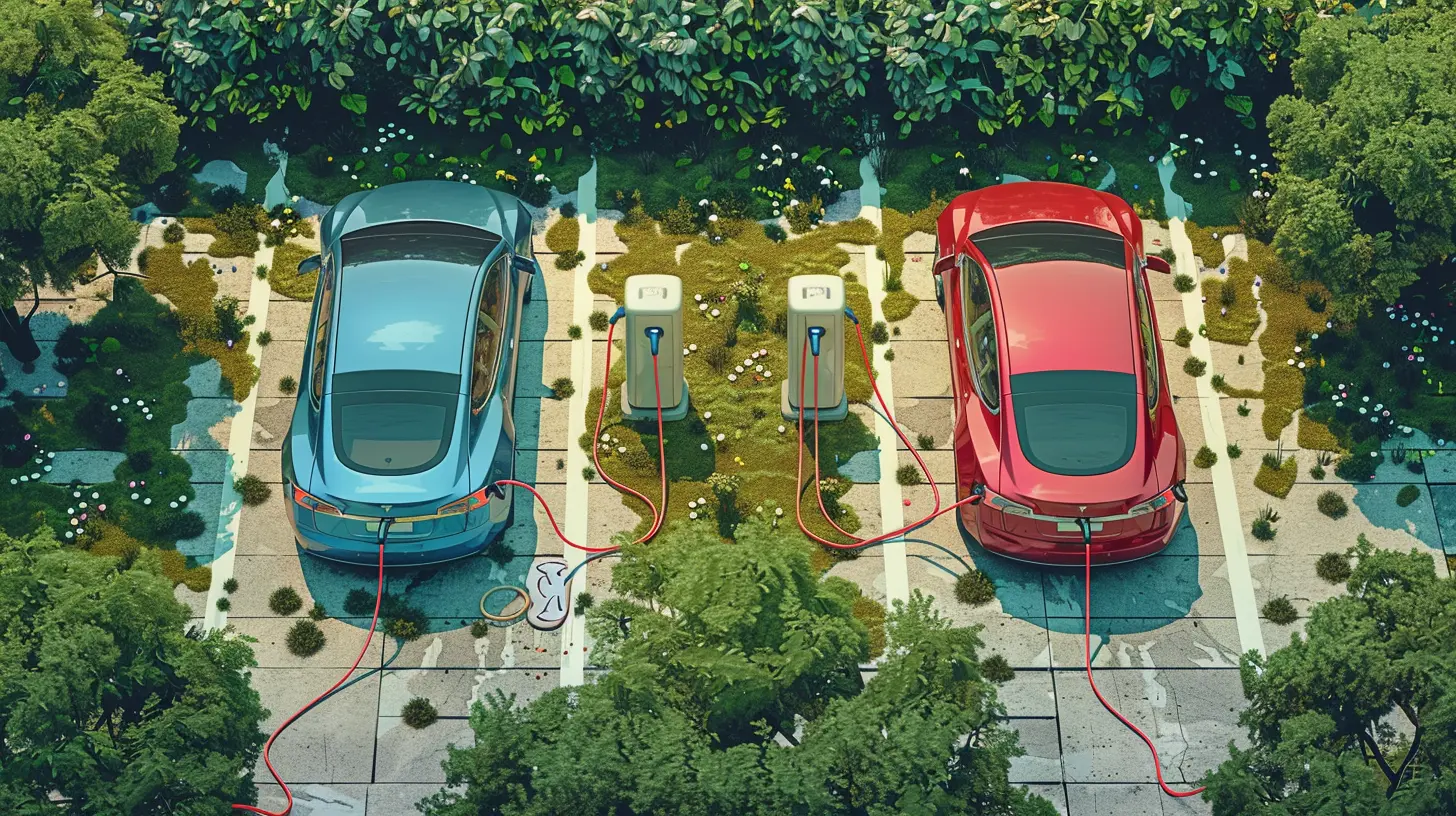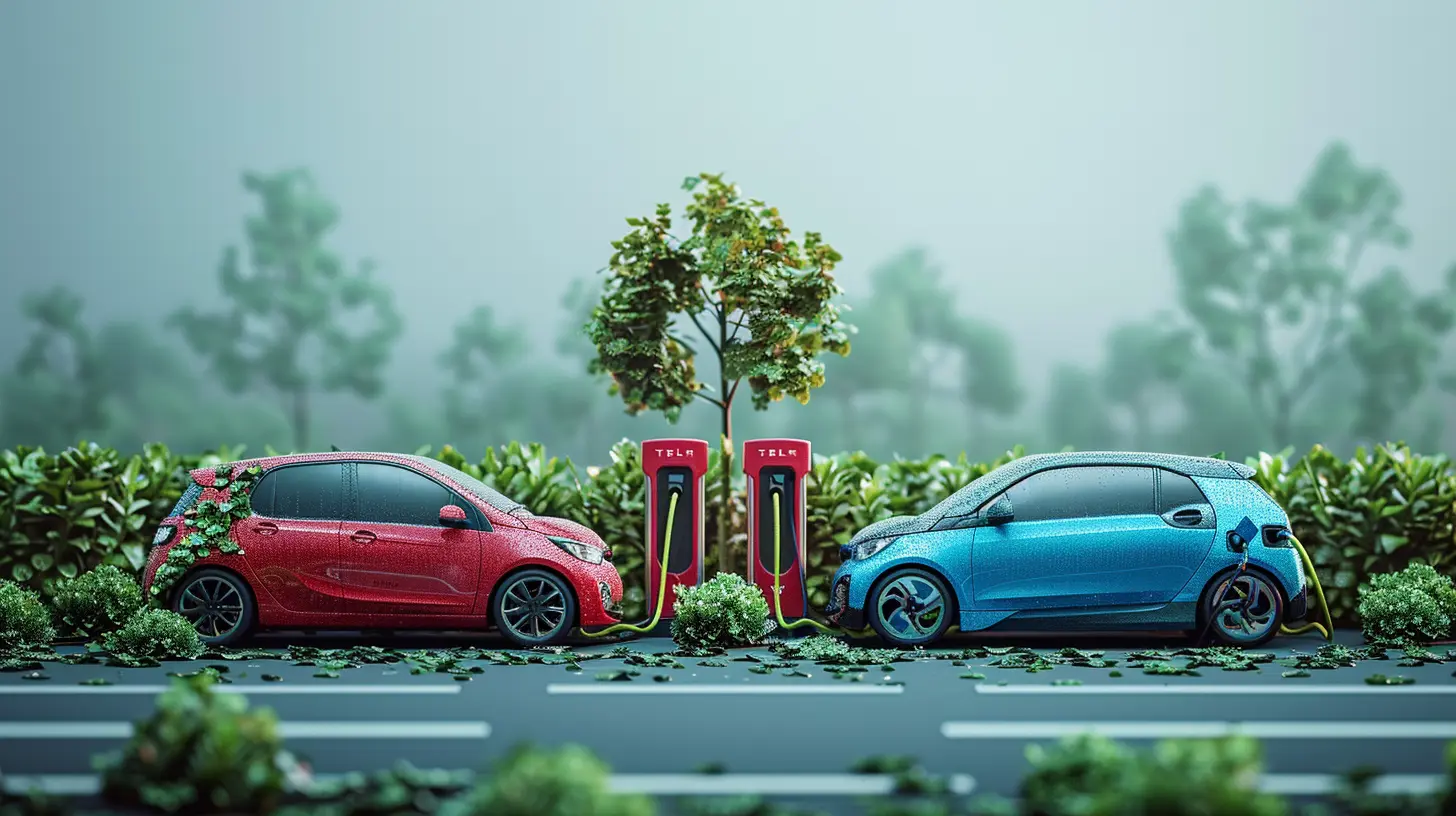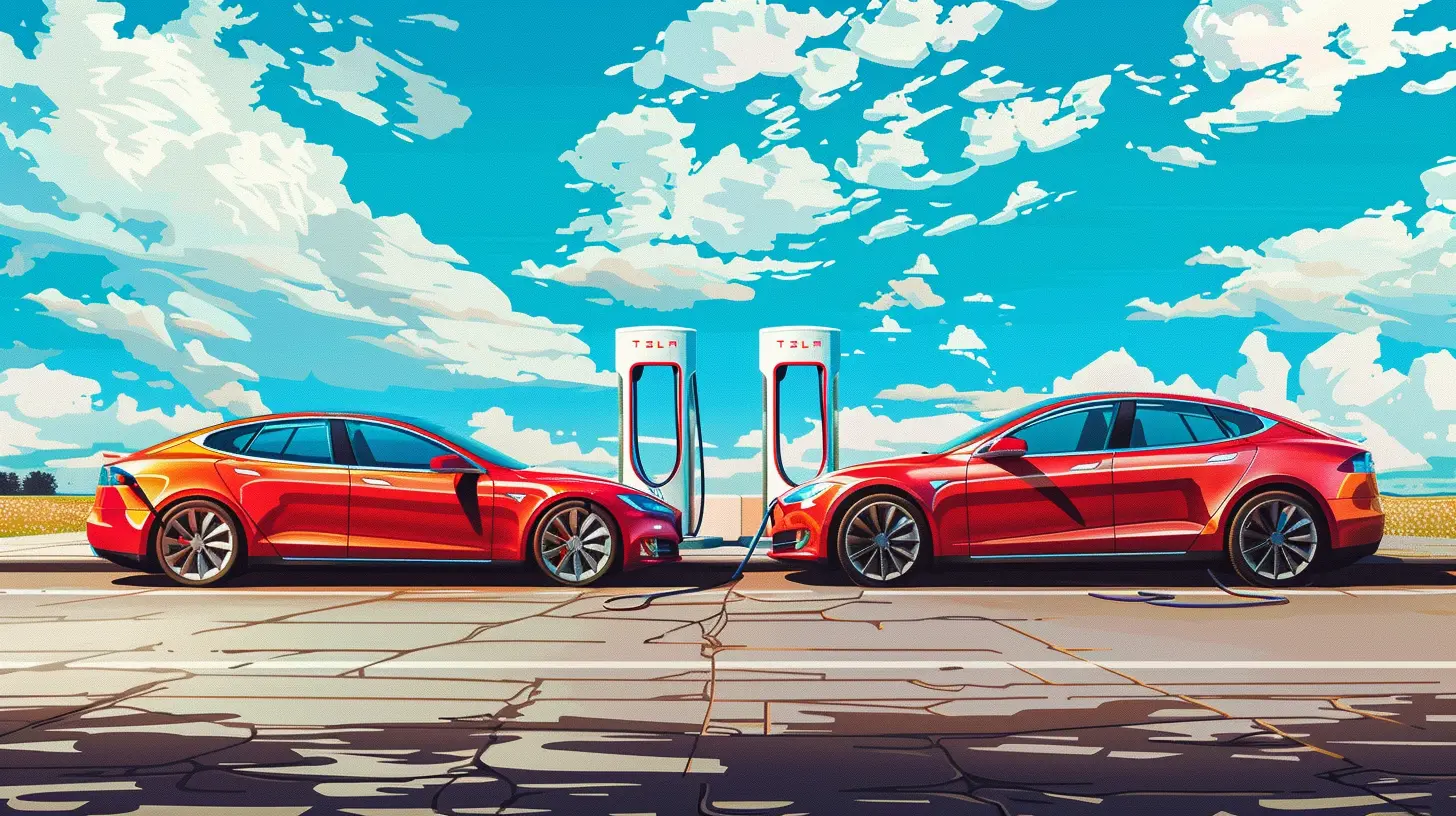Electric Vehicles vs. Hydrogen Cars: Which is Greener?
23 June 2025
When we talk about going green, the conversation inevitably drifts toward cars. And not just any cars, but the ones that promise to ditch fossil fuels and cut emissions—Electric Vehicles (EVs) and Hydrogen Fuel Cell Vehicles (HFCVs). They’re both hailed as the future of clean transportation, but the big question remains: which one is actually greener?
Well, grab your favorite drink and let’s dive in. It's time to settle the debate: Electric Vehicles vs. Hydrogen Cars—Which is Greener?
The Basics: What Are We Comparing?
Before we start dissecting which is more eco-friendly, let’s understand what each one is.Electric Vehicles (EVs)
EVs run entirely on electricity stored in batteries. Think Tesla Model 3 or the Chevy Bolt. You plug them in, charge up the battery, and drive without burning any gasoline. No tailpipe emissions, smooth ride, and quiet as a whisper.Hydrogen Fuel Cell Vehicles (HFCVs)
These use compressed hydrogen gas to generate electricity through a fuel cell. The electricity then powers an electric motor, just like an EV. Only emission? Water vapor. Vehicles like the Toyota Mirai and Hyundai Nexo fall in this category.Okay, now that we’re on the same page, let’s get into the green nitty-gritty.
1. Emissions: Tailpipe vs. Lifecycle
EVs: Zero Tailpipe Emissions, But That’s Not the Whole Story
EVs are true champs when it comes to tailpipe emissions—because they don’t have any! But the story changes when you look upstream. Making the battery, charging it, even the energy source you use matters.If your electricity comes from coal? Not so green.
From solar or wind? Now we’re talking.
Still, studies show that EVs produce fewer total emissions over their lifetime compared to gas-powered cars—even when powered by a coal-heavy grid.
Hydrogen Cars: Clean Puff of Air, But How’s the Hydrogen Made?
Hydrogen cars also emit zero CO₂ at the tailpipe—only water vapor. But producing hydrogen isn’t as clean as it sounds.Most hydrogen today comes from natural gas using a method called “steam methane reforming.” It’s energy-intensive and emits a lot of CO₂. There’s a cleaner version—“green hydrogen”—made using renewable electricity and water (via electrolysis), but it’s still expensive and not widely used.
So, if we’re talking about lifecycle emissions, EVs currently have a significant edge over hydrogen.
2. Energy Efficiency: Who Wastes Less?
Let’s talk about efficiency, or simply, how much energy goes into the vehicle versus what comes out as motion.EVs Are the Efficiency Winners
EVs convert about 77% of electrical energy from the grid to power at the wheels. That’s like turning four apples into three apple pies—pretty efficient.Hydrogen Cars Waste More
HFCVs, on the other hand, are a bit wasteful. From making hydrogen to compressing, transporting, and finally converting it to electricity in the fuel cell, the overall efficiency drops to around 25-30%.That’s like turning four apples into one decent pie and some leftover crust. Ouch.
So again, EVs take the win when it comes to energy use. Less waste, more go.
3. Infrastructure: What’s in Place?
EV Charging Stations Are Booming
One of the biggest things helping EVs right now is charging infrastructure. There are hundreds of thousands of public chargers worldwide, and that number’s growing fast. You can plug your car in at home, at work, or even while shopping.Hydrogen Refueling? Not So Much
Hydrogen stations? They’re rare. As of now, only a handful of places like California, Japan, and parts of Europe have a decent number of refueling stations.If you’re a hydrogen car driver outside of those areas, good luck finding a station. Infrastructure is a major bottleneck, and building hydrogen stations is expensive and time-consuming.
So in terms of availability and convenience, EVs have a serious head start.
4. Refueling Time and Range: Speed vs. Patience
Hydrogen Wins on Speed
Here's where hydrogen pulls ahead. Refueling a hydrogen car takes about 5 minutes, just like pumping gasoline. That’s great for people who hate waiting.EVs Need More Time
Even with fast chargers, EVs usually take 30 minutes to an hour to get a decent charge. Home charging? You’re looking at overnight charging for a full battery.BUT—and it’s a big one—charging an EV at home is incredibly convenient. No need to go anywhere. Just plug in when you get home and it’s ready by morning. Not exactly painful, is it?
Range-wise, hydrogen cars tend to go a bit farther, 300-400 miles, compared to many EVs that hover around 200-300 miles, although newer EVs are quickly catching up.
5. Cost: Up-Front and Long-Term
EVs Are Dropping in Price
EVs used to be expensive, but now prices are coming down. Plus, they’re cheaper to run—lower electricity costs and fewer moving parts mean less maintenance. And don't forget tax incentives and rebates in many areas.Hydrogen Cars? Still Pricey
HFCVs are still quite expensive, both to buy and refuel. Hydrogen fuel isn't cheap (yet), and with limited stations, it’s not practical for most.So financially speaking, EVs are much more appealing for the average driver.
6. Sustainability and Materials: What's Inside Matters
EV Batteries: A Double-Edged Sword
EV batteries use materials like lithium, cobalt, and nickel. Mining these can have serious environmental impacts—and often comes with ethical concerns, especially in regions where labor laws are lax.However, battery recycling is on the rise, and new tech (like solid-state batteries) promises to ease these issues. Plus, battery reuse (like for home energy storage) gives batteries a second life.
Hydrogen Fuel Cells Avoid the Mining Stress
Hydrogen fuel cells don't rely on the same rare metals used in batteries. That’s a plus. But remember, making and transporting hydrogen is energy-intensive and can involve fossil fuels unless it's green hydrogen.It’s a bit of a trade-off here, but many experts see EVs' material issues as easier to solve over time.
7. Scalability: Who's Ready for the Masses?
EVs Are Already Winning
There are millions of EVs on the road already. The industry is booming. Automakers like Ford, GM, Mercedes, and even Ferrari are going electric. And the infrastructure, regulations, and consumer awareness? All heading in the EV direction.Hydrogen Is Still Finding Its Place
Hydrogen has potential, especially for heavy-duty vehicles like trucks, buses, and trains—places where battery weight and charging time become problematic.But for regular cars and daily driving? EVs are overwhelmingly more scalable right now.
The Verdict: So, Which is Greener?
Alright, time to wrap it up.When it comes to being greener right now, EVs clearly come out ahead in several key areas:
- Lower overall emissions
- Higher energy efficiency
- Better infrastructure
- Lower cost
- Faster scaling
Hydrogen has potential, especially down the road, for specific use cases like long-haul trucking and industrial applications. But for Joe and Jane’s daily commute? EVs win hands down.
Final Thoughts
Think of it this way: hydrogen cars are like that promising athlete who just joined the team. Loads of potential, but still needs training, equipment, and strategy. EVs, on the other hand, are the seasoned MVP already winning games and gaining fans.That doesn’t mean hydrogen should be benched—far from it. But in the great green race of 2024, Electric Vehicles are leading the lap.
So, if you’re choosing your next eco-friendly ride, the answer is pretty clear.
all images in this post were generated using AI tools
Category:
Environmental TechAuthor:

Ugo Coleman
Discussion
rate this article
2 comments
Levi Montgomery
Why not let electric cars and hydrogen ride together into the green future? Let’s spark the debate, not the emissions!
September 30, 2025 at 12:50 PM

Ugo Coleman
Absolutely! Both electric and hydrogen vehicles offer unique benefits, and a combined approach could enhance sustainability while minimizing emissions. Let's explore the strengths of each technology!
Lulu Snow
Great article! It's fascinating to see the comparison between electric vehicles and hydrogen cars. Both technologies have potential benefits and challenges for sustainability. I look forward to further developments in the green transportation sector. Thank you for this insightful analysis!
June 27, 2025 at 11:54 AM

Ugo Coleman
Thank you for your thoughtful comment! I'm glad you found the comparison insightful. The future of green transportation is indeed exciting!


